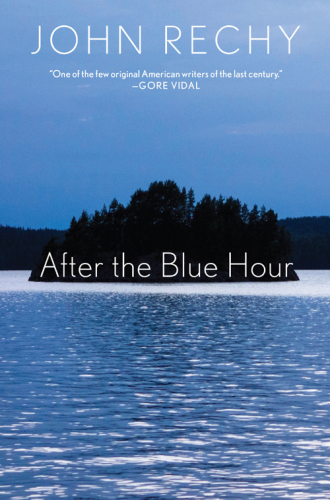
After the Blue Hour
کتاب های مرتبط
- اطلاعات
- نقد و بررسی
- دیدگاه کاربران
نقد و بررسی

February 27, 2017
Rechy’s (City of Night) latest is tense metafiction, pungent with desire and emotional cruelty. Its narrator—a writer named John Rechy—accepts an invitation from Paul Wagner, a fan of his transgressive fiction, to leave Los Angeles in 1960 for a summer on Paul’s private (and suggestively described) “inland island.” Almost immediately John becomes caught up in games played by Paul; his petulant teenage son, Stanty; and Paul’s mistress, Sonya, as Paul seeks to validate his own peculiar appetites with regard to the sexual encounters chronicled in John’s fiction. Early in the course of the group’s interactions, John senses “a benign surface over an undercurrent... a current that was gathering pressure,” and the eruption of that pressure is foreordained in the book’s title, which refers to that brief moment when daylight gives way to night and “everything reveals itself as it is.” Rechy’s prose is lean and sinewy, and he adds an element of intrigue to the novel by having John, in his role as a character who is writing up his experiences on the island, reproduce passages of the text that end abruptly when they begin to veer into territory outside the bounds of the novel as Rechy has written it. The novel is unflinching in its candor even as its events have a tantalizing aura of mystery.

February 15, 2017
Novelist Rechy, still best known for his 1963 debut, City of Night, returns with a steamy tale that, had it appeared then, might well have been banned.Rechy's 2008 book, About My Life and the Kept Woman, was subtitled "An Autobiographical Memoir," which seems rather oddly redundant. His latest is subtitled "A True Fiction," by which we might assume that the facts are more or less factual while some of the names have been changed to protect the--well, the anything but innocent. The narrator, a young man who just happens to be named John Rechy, is summoned to the coast for an island retreat with a wealthy patron who has read and admired Rechy's work. "When I read your stories," says the mysteriously wealthy Paul, "I felt--I know what it's like to live by one's wits. That's how I've lived my life, my adult life." Throw the emphasis on "adult," and wits hardly enter into the picture, though con games, spectacles of domination, and violations of various laws of the day certainly figure prominently; though decidedly literary, there are plenty of moments where Rechy's recountings turn from PG into hard X, with rompings and barkings that wouldn't be out of place in a Frank Harris fan's hidden-from-the-kids bookshelf. Paul is infinitely curious and demanding as well as being a touch more perceptive about some things than the less worldly John Rechy: when discussing the ways and wherefores of the male hustler, for instance, he intones that the real business at hand is power: "Power, of course, man, sexual power. You wanted power over willing victims." The sensitive reader will note that power is the currency here, but just how willing some of the victims are is a topic for discussion, at least in the spaces between every possible variation on human coupling. Grown-up stuff, with a kind of Gatsby-by-way-of-Henry James subplot. Beautifully written but surely not for the faint of heart.
COPYRIGHT(2017) Kirkus Reviews, ALL RIGHTS RESERVED.

























دیدگاه کاربران